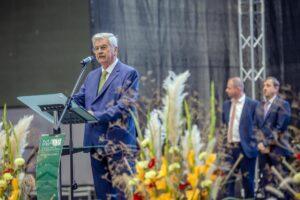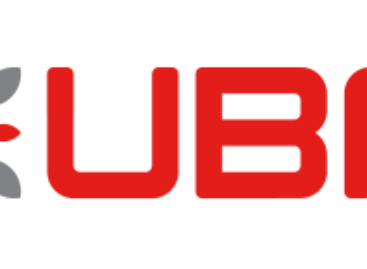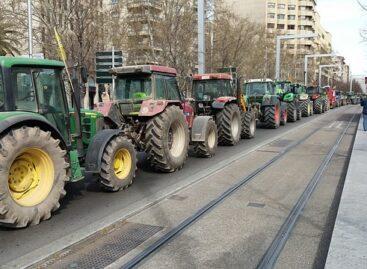Animal husbandry will continue to play a decisive role in agriculture in the future
Animal husbandry will play a decisive role in Hungarian agriculture today and in the future, the Parliamentary State Secretary of the Ministry of Agriculture announced in Kaposvár on Friday.

(Photo: AM/Tibor Vermes)
At the opening of the KÁN University Days event, Sándor Farkas indicated that this will be the case despite the fact that the European Union support cycle started last year imposes more and more green production restrictions and administrative burdens on producers and the public administration. This inevitably affects the dynamics of access to subsidies when the role of subsidies in profitability and development has increased, therefore they count on the cooperation and sharing of experiences of the Association of Hungarian Livestock Breeders, breeding organizations, the profession, agricultural higher education, and knowledge centers in the socialization of calls, he said. to it. He explained that in the future there will be “numerous roles and tasks” that go beyond the narrow traditional professional activities related to breeding and genetic development work, but if farmers want to profitably and successfully produce and sell breeding animals, then much more than usual area you have to “put on the gloves”. The State Secretary emphasized that Hungarian livestock breeders and livestock keepers have the largest number of support titles available in comparison to the EU, and in recent years they have seized every opportunity to expand them within the framework of EU regulations and the Hungarian budget. He emphasized that in the Strategic Plan of the Common Agricultural Policy, priority support for animal husbandry will continue to be maintained as far as possible, calls to support the general modernization of animal farms, the establishment of new farms, and the reduction of energy consumption will continue to be available, and there will also be an opportunity to subsidize the development of epidemic prevention in farms. He noted that the maximum amount that can be awarded is 5 billion forints for the call for support for the development of livestock farms, with a budget of 150 billion forints, and 200 million forints for the call for support for the renewal of animal farms, he noted. He added that support applications can be submitted from October 15 for the former, and from September 17 for the latter. Sándor Farkas also spoke about the fact that some animal welfare and gene preservation applications have become available to livestock keepers, as the government considers the preservation of the genetic foundations of livestock breeding, the sustainable use and development of agricultural genetic resources to be a priority task. “We also plan to support the in situ conservation of animal genetic resources within the framework of the strategic plan. Similar to the previous support, fourteen indigenous poultry breeds will be eligible for support. We will announce the call this year,” he said. He added that further tenders to encourage animal welfare activities are also being prepared: according to the plans, tenders for dairy cattle, small ruminants and the beekeeping sector will also be published this year. Sándor Farkas said that it is expected that the advance payment of the increased amount will start from October 16, the rate of which can be a maximum of 70 percent in the case of direct subsidies, and a maximum of 85 percent in the case of area and animal-based subsidies financed from rural development resources.
The partial and final payments will start from December 1, and they will last until June 30, 2025, because the government’s goal is to start advance and partial payments on all possible legal grounds, and to provide the final payments to as large a proportion of the affected farmers as possible until March 30, 2025, he announced.
István Jakab, the vice-president of the Parliament and the president of the Association of Hungarian Farmers’ Associations and Farmers’ Cooperatives (Magosz) spoke about how the world is trying to “make it easier” for animal husbandry along the lines of new fashions and new ideologies, but they believe that food should not be produced through tissue propagation, but under natural conditions. must be produced using quality raw materials. Addressing the primary and secondary school students who attended the opening, he expressed his hope that young people will be able to overcome the fashion wave, because high-quality food means health. Károly Szita (Fidesz-KDNP), the mayor of Kaposvár, said that the KÁN has long been much more than three professional days, that it offers the opportunity to glimpse into the mysteries of animal husbandry and strengthens the belief that successful past and present there is a successful future. Csaba Gyuricza, rector of the Hungarian University of Agriculture and Life Sciences (MATE), pointed out that KÁN, which looks back on its three-decade history, has now become not only the largest agricultural exhibition in Transdanubia, but also the largest event of its kind in Hungary, which connects agriculture, agricultural training, higher education and the field of retraining. Science is presented, the most modern knowledge is presented, since agriculture has become a high-tech sector, where digitization, robotics, space technology and traditional knowledge also appear – he pointed out. Zsolt Papp, the president of the National Chamber of Agrarian Economy, spoke about his belief that the KÁN is the best advertising platform and biggest marketing platform for animal husbandry, where you can learn about the latest research, innovations, and technologies. This three-day event, which started as a livestock exhibition and has now evolved into university days, will feature 100 exhibitors interested in agriculture, and the organizers expect 30-40 thousand visitors to the programs.
MTI
Related news
Related news
Festival buzz at the 60th anniversary EuroShop trade fair
🎧 Hallgasd a cikket: Lejátszás Szünet Folytatás Leállítás Nyelv: Auto…
Read more >No matter how much you save, food and gadgets always take the money
🎧 Hallgasd a cikket: Lejátszás Szünet Folytatás Leállítás Nyelv: Auto…
Read more >Historic price reduction at ALDI
🎧 Hallgasd a cikket: Lejátszás Szünet Folytatás Leállítás Nyelv: Auto…
Read more >







